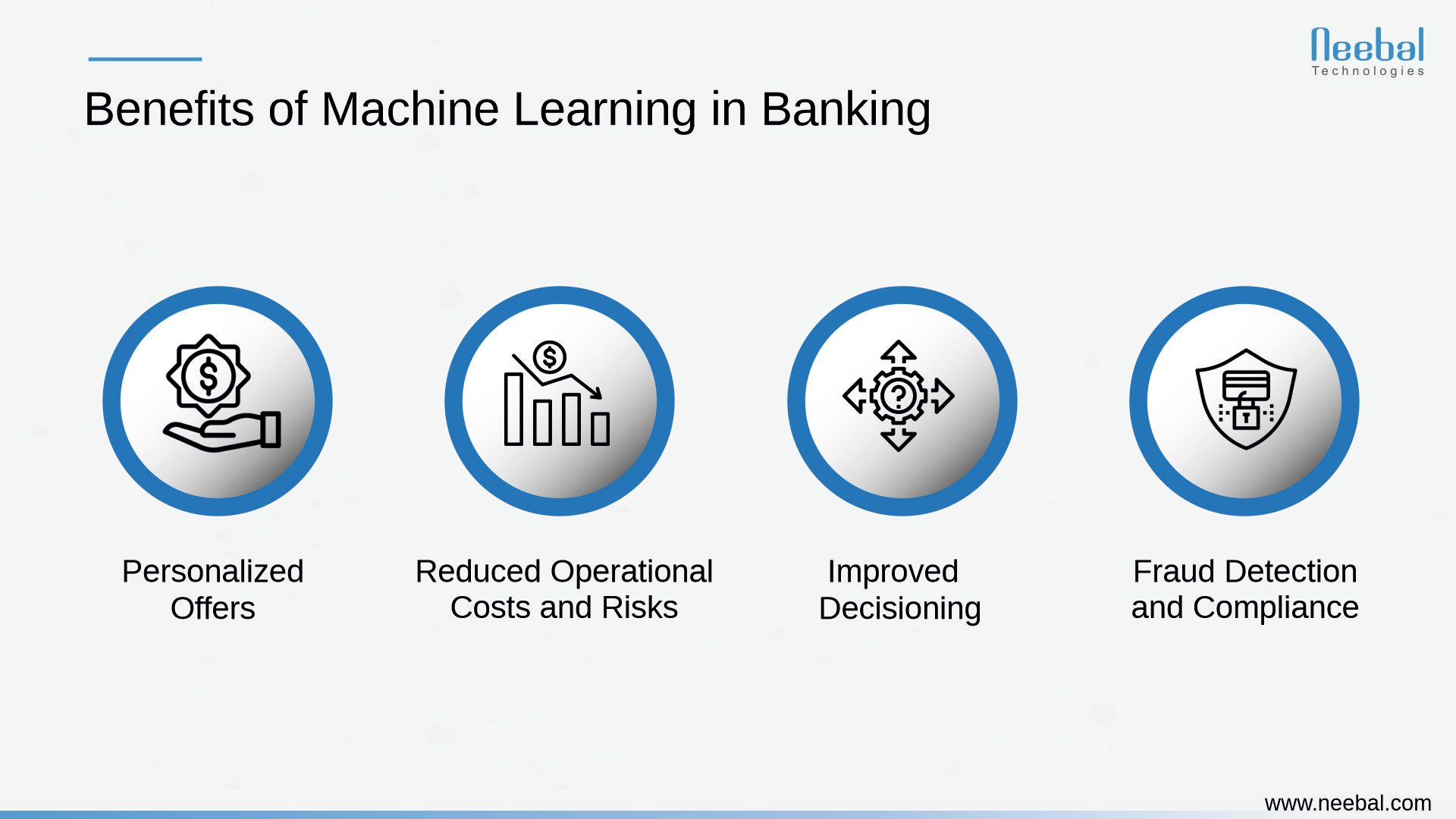The infusion of Machine Learning (ML) has become a catalyst, revolutionizing traditional banking norms and reshaping the way financial services are delivered. This technological innovation has been seen in many ways, profoundly impacting the fintech sector. Our exploration into the significant role and diverse applications of ML in the financial domain unveils the transformative impact, empowering institutions to meet the dynamic needs of customers and streamline operational efficiencies.
The Metaverse Impact on Fintech
The chatter about the Metaverse has reached a peak, promising a virtual world interconnected through interactions and transactions. This digital realm is redefining finance, particularly in the realms of cryptocurrency, non-fungible tokens (NFTs), and digital assets, which have become integral parts of online financial transactions.
The birth of the Metaverse gives a host of opportunities for financial institutions. It facilitates collaborative engagement with customers, allowing interactions that almost mirror real-life scenarios, albeit in a smoother, more secure virtual environment.
Banking in the Metaverse isn’t limited to transactions; it involves immersive experiences where clients attend events, consult with virtual advisors, or transact using digital assets. The endless possibilities in this realm herald new markets, products, and services, revolutionizing the approach of banks in serving their customers.
Conversational AI and Client Engagement
Consumers expect round-the-clock communication and swift responses. AI-powered chatbots, fueled by data analytics and ML algorithms, have become the frontline solution in meeting these expectations.
These chatbots provide natural, personalized interactions, offering real-time assistance and solutions while enhancing the overall customer experience.
Low Code and No-Code AI Solutions
The emergence of low-code and no-code AI tools has been a game-changer in the development of highly automated ML solutions.
Organizations are swiftly embracing these tools to reduce development costs and time-to-market. This approach empowers even non-technical individuals to create applications, delivering a seamless customer experience.
Exploration of Machine Learning Use Cases in Banking
Onboarding and Document Processing – ML streamlines document processing, significantly reducing the time and effort involved in onboarding new clients. This not only enhances operational efficiency but also paves the way for a seamless customer experience.
- Fraud Detection – ML algorithms scrutinize large datasets in real-time, empowering financial institutions to detect and prevent fraudulent activities, minimizing human intervention and enhancing user experience.
- Regulatory Compliance – The application of ML in Regulatory Technology (RegTech) automates the monitoring and adherence to regulatory guidelines, reducing manual efforts and ensuring compliance.
- Credit Scoring – ML models revolutionize credit scoring, providing personalized assessments and expanding access to credit, eliminating biases, and catering to a broader clientele.
- Customer Retention – ML predicts customer behavior changes, allowing proactive measures to retain customers, mitigating the cost of acquiring new ones.
- Payments – ML optimizes payment processes, reducing costs, and facilitating data-driven decision-making for payment providers.
- Investing – ML-driven algorithms assist in making informed investment decisions, ensuring efficient trading, and making financial markets more accessible.
- Anomaly Detection – ML-powered systems ensure real-time responsiveness, crucial in identifying potential illegal activities and deviations in financial transactions.
Benefits of Machine Learning in Banking

Personalized Offers
Machine Learning (ML) empowers banks to craft highly personalized services tailored to individual customer behaviors and preferences. By analyzing vast amounts of data, ML algorithms discern patterns in customer interactions, enabling banks to offer customized experiences.
This leads to targeted product recommendations, personalized financial advice, and tailored solutions, fostering a deeper connection with customers by providing what they need at the right time. Ultimately, this level of personalization enhances customer satisfaction and strengthens the bond between financial institutions and their clients.
Reduced Operational Costs and Risks
ML systems serve as a transformative force in banking operations by automating and optimizing various processes. Through automation, these systems streamline operations, reducing human-induced errors and mitigating risks associated with manual interventions.
Tasks such as data entry, transaction processing, and risk assessment are efficiently handled by ML, leading to cost reduction and an overall increase in operational efficiency. The integration of ML technologies minimizes the potential for errors, ultimately enhancing the reliability and accuracy of financial operations.
Improved Decisioning
Machine Learning plays a pivotal role in bolstering the decision-making process concerning loans, credits, and investments within the financial domain. By analyzing multifaceted data sets, ML models offer insights that aid in informed decision-making.
These models assess risk factors, creditworthiness, and investment opportunities, providing a comprehensive view for making more accurate and risk-averse decisions. The utilization of ML ensures that financial institutions can make well-informed decisions, optimizing their lending practices and investment strategies for both customers and the institution.
Fraud Detection and Compliance
ML stands as a robust shield against fraudulent activities within financial systems. Through sophisticated algorithms and pattern recognition, ML systems sift through extensive data, identifying anomalies and suspicious patterns that may indicate fraud.
Additionally, these systems support compliance efforts by meticulously monitoring transactions and customer behavior, ensuring adherence to regulatory standards. This proactive approach safeguards financial institutions against potential risks, providing a secure and compliant environment while bolstering trust and confidence among customers.
Conclusion
The infusion of Machine Learning in the Fintech industry has not only transformed customer experiences but has also optimized operational efficiencies and risk management. From revolutionizing customer engagement in the Metaverse to ensuring compliance and fraud detection, the diverse applications of ML in banking and finance present a promising future.
Neebal offers cutting-edge Machine Learning solutions within the financial services sector, revolutionizing traditional practices. Their innovative ML applications empower financial institutions by enabling personalized offerings, enhanced decision-making, and robust risk management. Neebal’s expertise in fraud detection and compliance reinforces the security of financial systems, providing proactive measures to safeguard against potential risks, earning trust and confidence among clients.
Topics: API Integration, DevOps, App Development